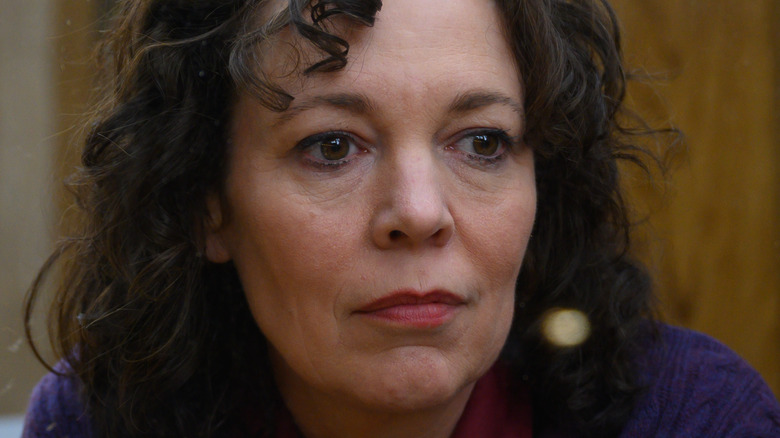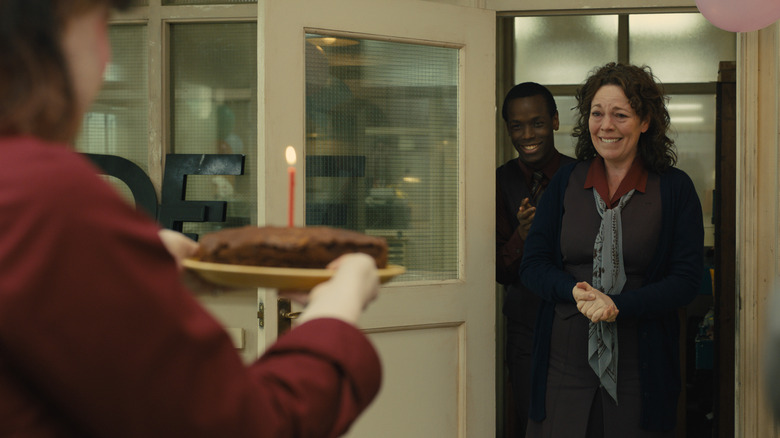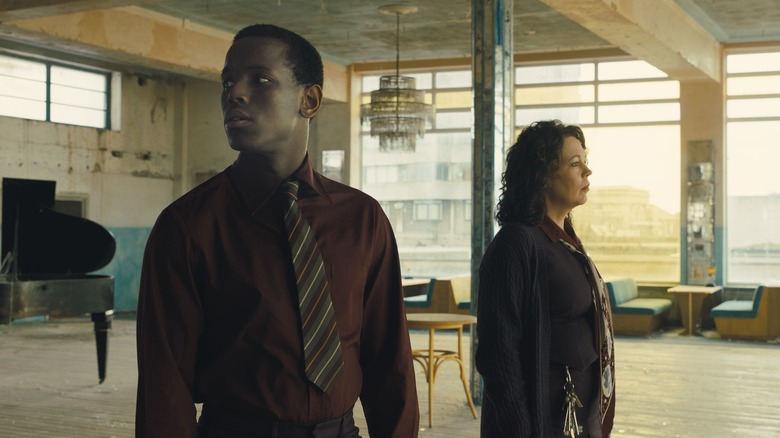Empire Of Light Review: The Power Of Cinema Shines Dim
- Gorgeous cinematography from Roger Deakins
- Fascinating, well-acted characters
- Way too much going on
Sometimes when you're making a movie, everything just seems to come together. That would seem to be the case with "Empire of Light," with acclaimed director Sam Mendes having Olivia Colman and Colin Firth on board, along with legendary cinematographer Roger Deakins, for his period drama set in a 1980s seaside cinema. It kind of feels like the sort of thing that's failure-proof. This is why it's such a shock to the system that "Empire of Light," sad to say, is not just disappointing, not just flawed, but actively bad. It somehow manages to take what is initially a compelling subject and suck all the charm out of it. "Empire of Light," which screened at the Toronto International Film Festival, is a victim of too many subplots. Where any one of them might have made for an enjoyable film, the fact that they are all together make the final product so hopelessly muddled that it borders on incoherent.
Olivia Colman stars as Hilary, an employee at a delightful old movie theater, which is packed with personality and history, even as it faces financial difficulties in the midst of 1980s austerity in Great Britain. She is quiet and reserved, the sort of person who keeps their head down and gets on with her work, although her wilder, more unstable side quickly becomes more evident when we learn that she's engaging in a secret affair with her boss, a married man played by Colin Firth. When the charming young Stephen (Micheal Ward) joins the staff, however, the two develop an immediate bond that grows into a unique romantic relationship. Their happiness is short-lived, though, as it must contend with their considerable age difference, racial tensions threatening to boil over, and Hilary's growing mental instability.
Too many subplots
The biggest problem in "Empire of Light" is that it stubbornly attempts to be about pretty much everything. It takes about a dozen different subplots and fully commits to them all. There's a sense that if they could have just chosen one and focused on that, they would have been alright, but there's just too much going on to cobble together one cohesive narrative. It's about a woman attempting to rebuild her life after being institutionalized, and the terror of relapse. It's about coming of age as a Black person in 1980s England when violence from neo-Nazis and white supremacists was an ever-present threat.
It's about a quirky May to September romance between a charismatic man in the bloom of his youth who begins dating a fragile older woman. It's about a ragtag group of cinema employees and all of the workplace drama that goes along with them as they prepare to host a glitzy premiere that might save their theater. It's about the magic of cinema, for crying out loud — it shouldn't be a hard sell. Plainly, "Empire of Light" is just about too many things. The most frustrating part is that each storyline is interesting on its own (although unfortunately, Olivia Colman's main plot is the weakest of these, through no fault of her own), but they can't help but get in each other's way.
When all else fails, lean on your actors
The actors, at least, are blameless. Olivia Colman's character may be something of a caricature of mental illness, growing more and more unstable as the film drags on, but she wrings a vulnerability from the script that makes us sympathetic to her. Micheal Ward is a rising star who deserves all the credit in the world for building such a charming, sensual, engaging performance that captures not just his joyful youth but the heartbreak that goes along with his place in British society. The cast members who play the cinema employees, lovable misfits as they are, fully develop their characters — you feel as though they have their own lives and intriguing backstories (some of them, we suspect, perhaps more interesting than what we ultimately see on screen). The always-reliable Toby Jones has an extended monologue about mourning the lack of a relationship with his estranged son. We would happily watch a movie just about his lonely projectionist. There is a sense that he and some of his illustrious colleagues (chief among them Colin Firth, who has a perplexing presence as the theater owner and Hilary's lover and must feel particularly hard done by with such a nothing role that doesn't serve him particularly well.)
Alas, that is not the movie Sam Mendes and company were interested in making. Beautifully shot, "Empire of Light" nonetheless fails to find its footing, coming across as a hodgepodge of ideas in a brainstorming session rather than a major Hollywood production with some of the greatest artistic talents the film community has to offer. It's a rare miss from a director who has always brought such humanity to his films, and a disappointing waste of the talent involved in the production. What a shame to have all the components of a moving story about love, racial tensions, mental health, and the majesty of cinema, but somehow misplace the instruction manual on how to put it all together.
"Empire of Light" is now playing in theaters.


